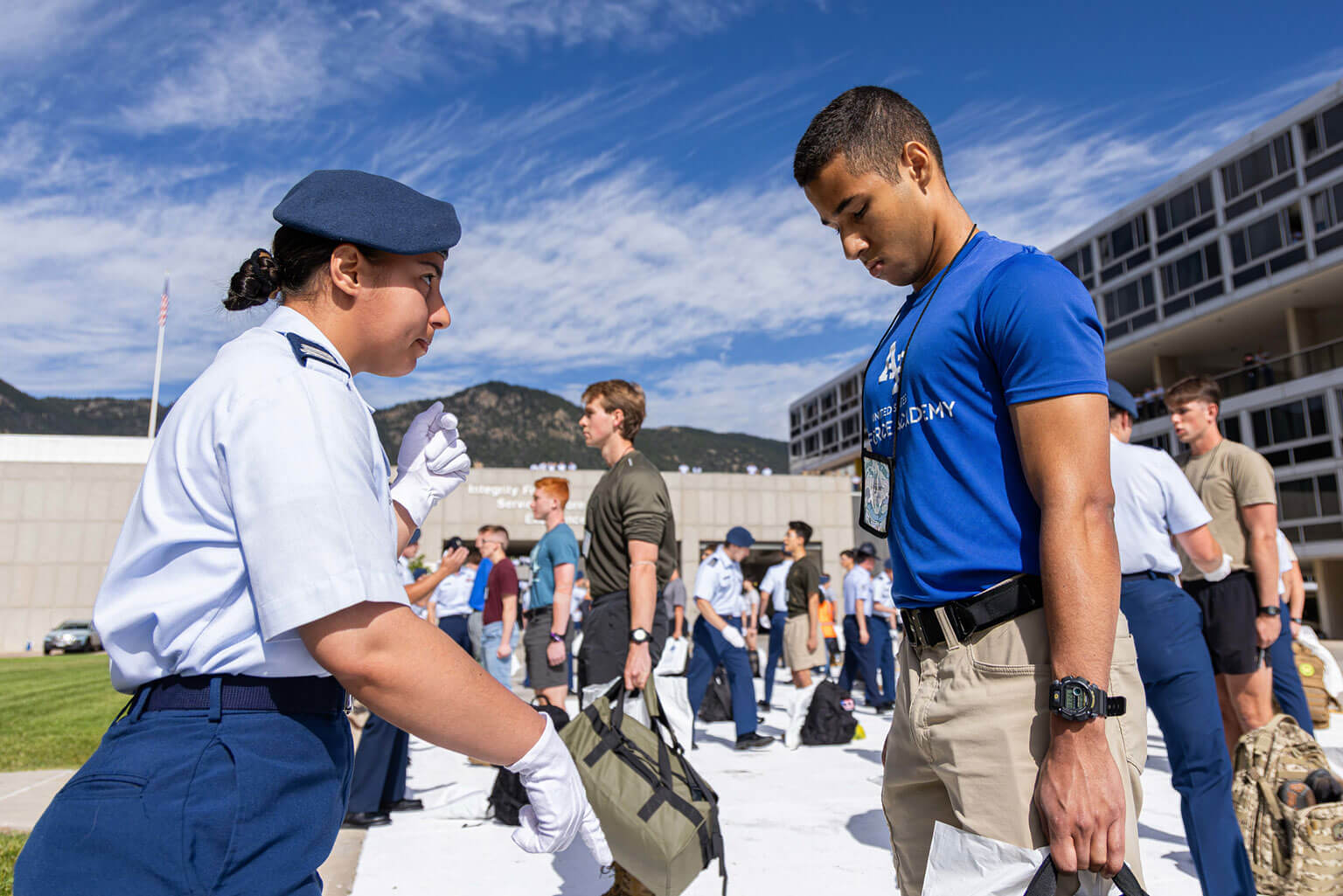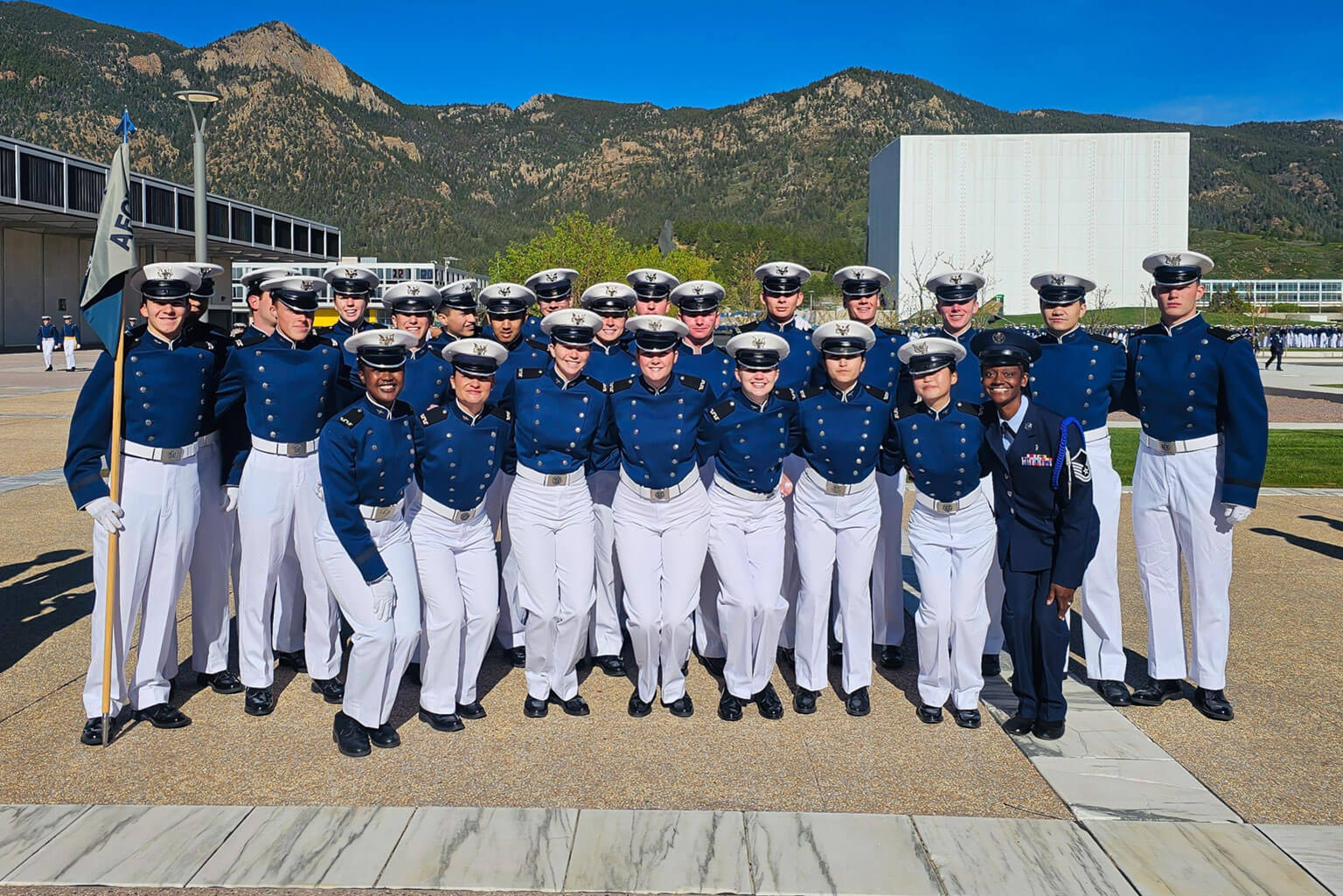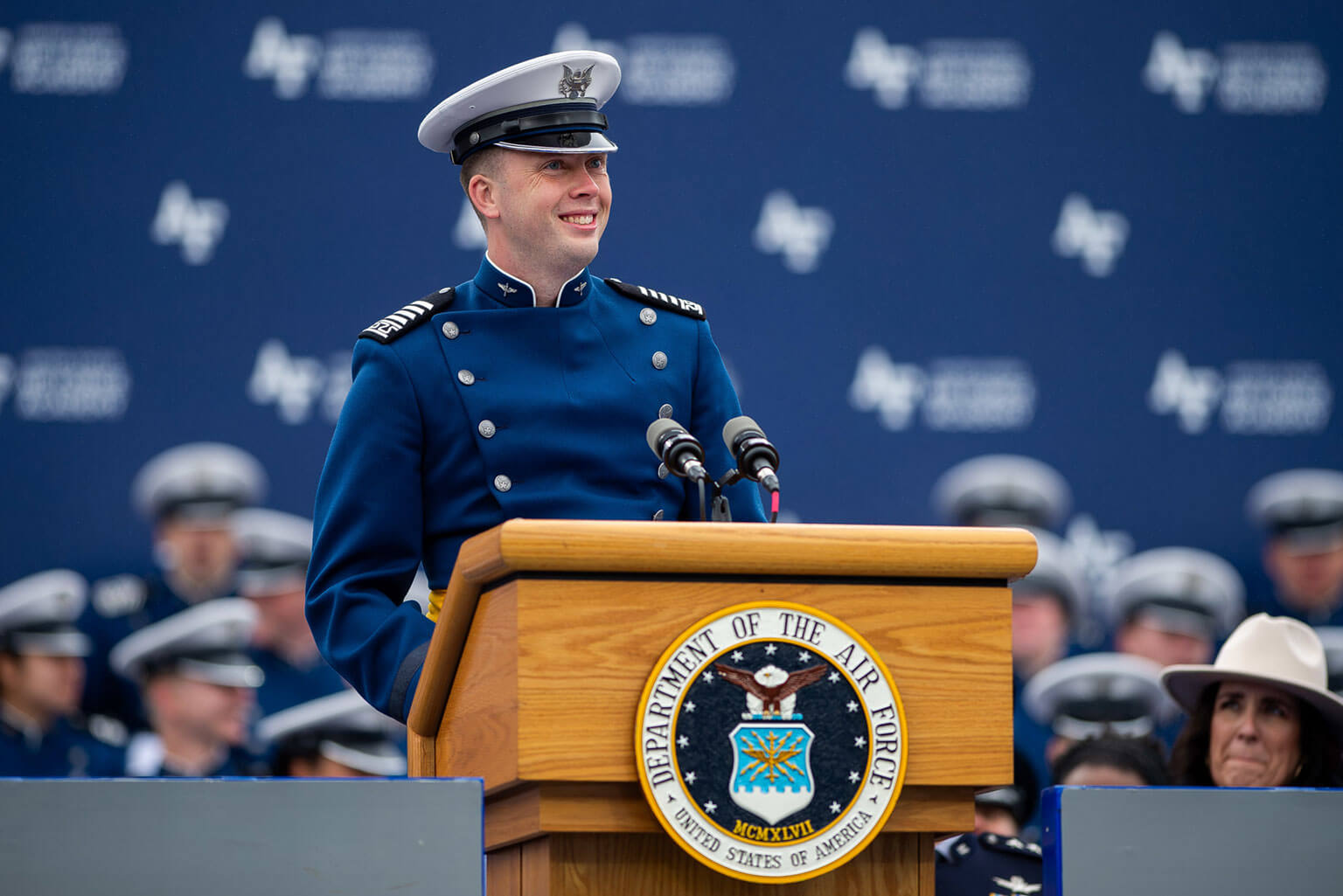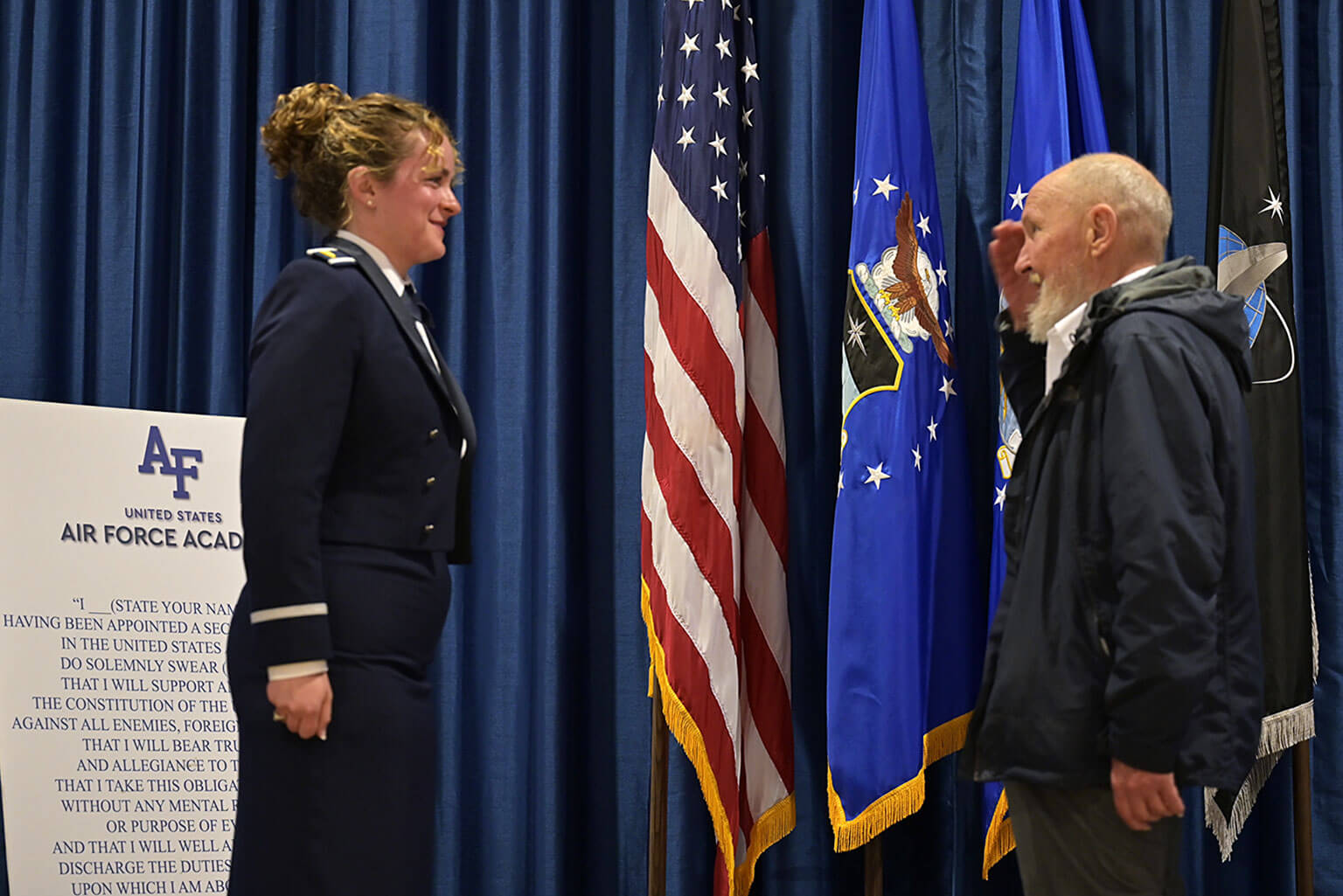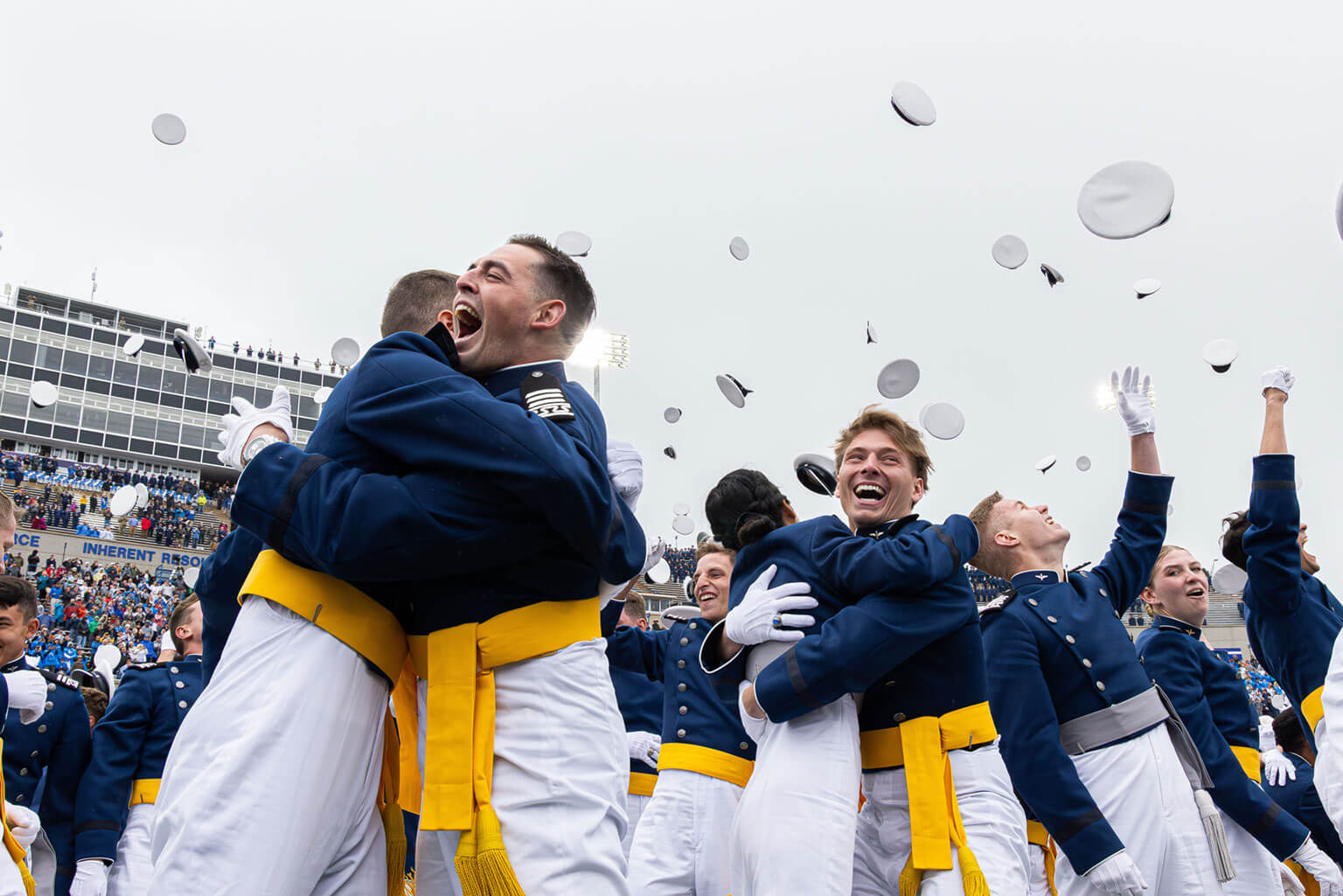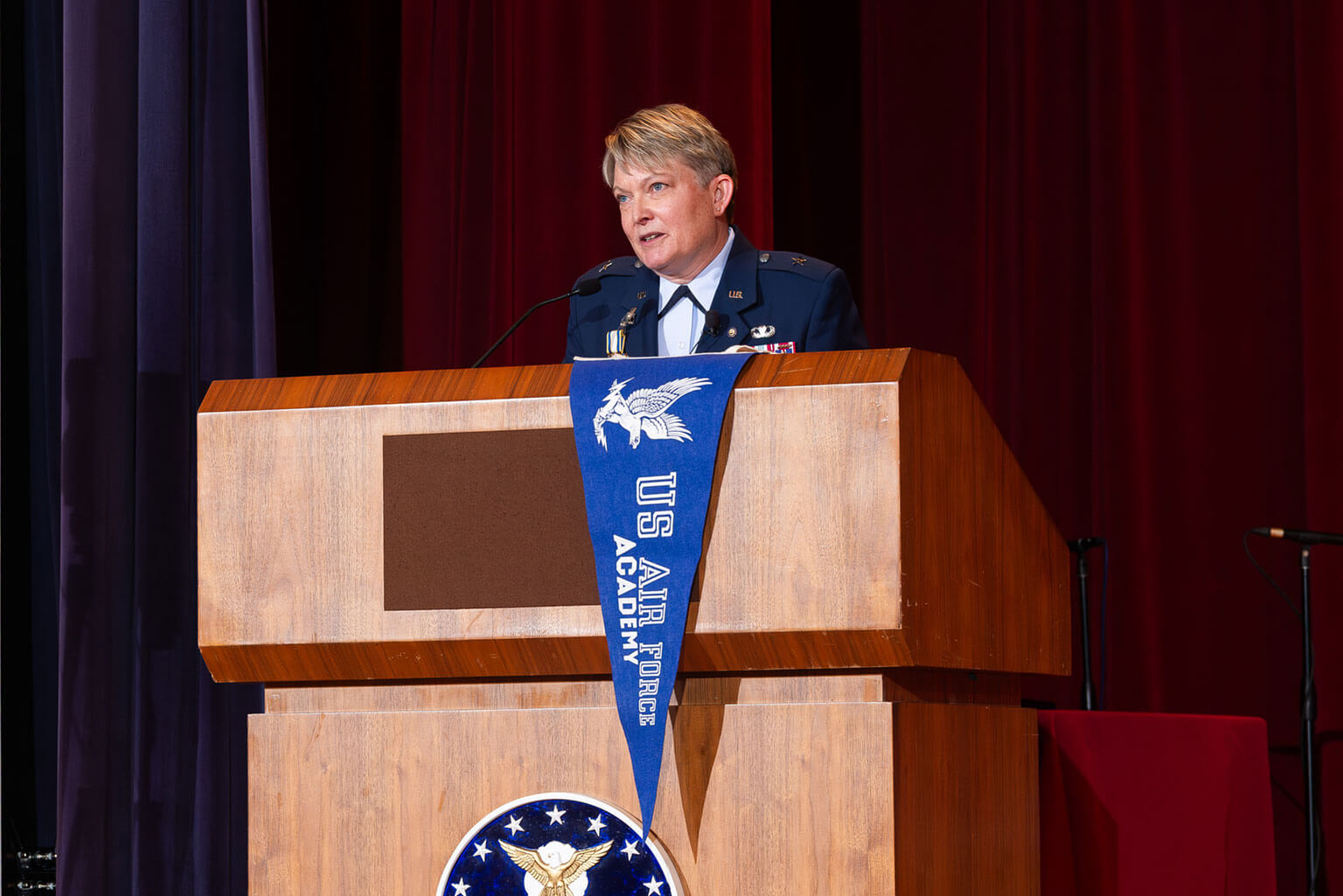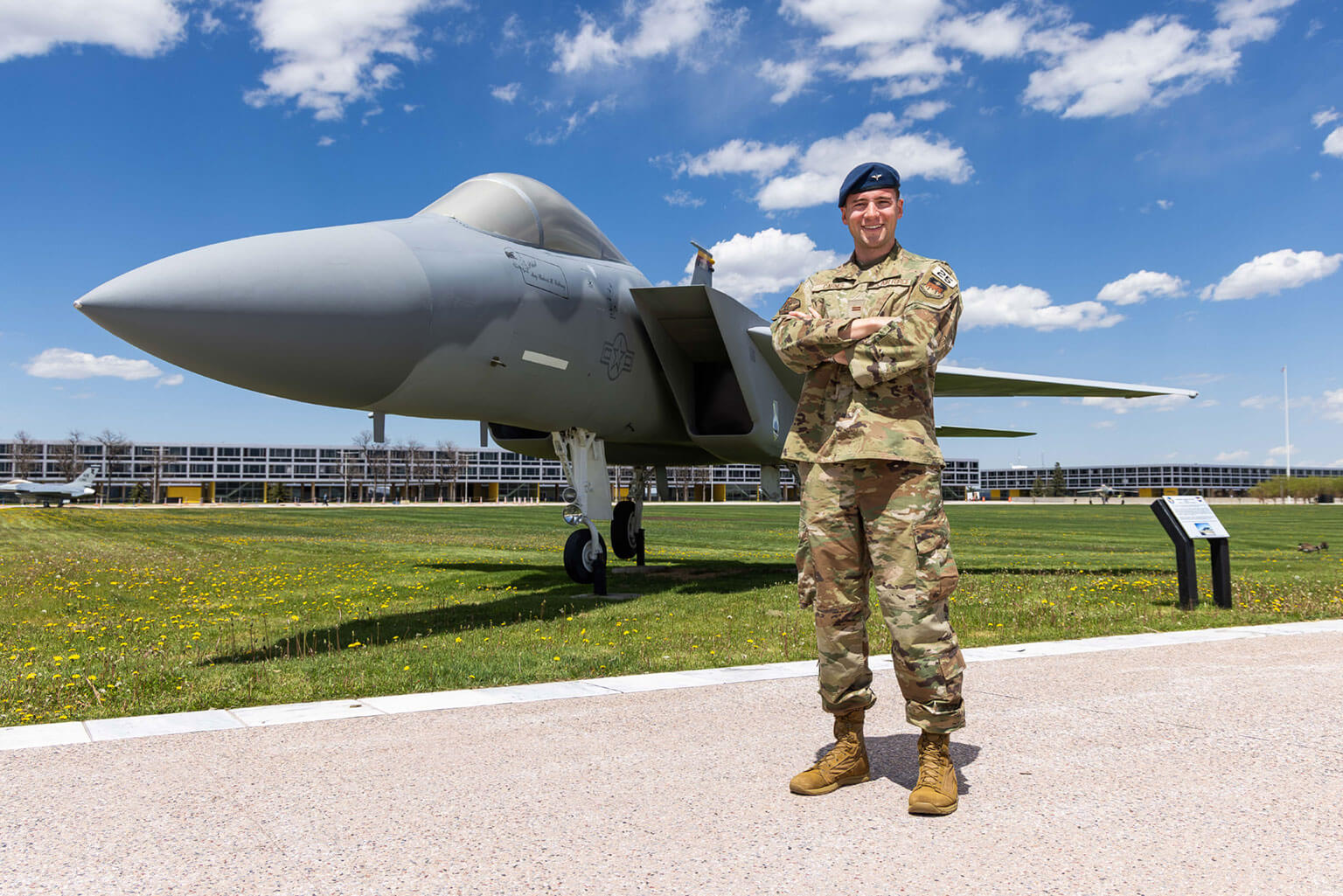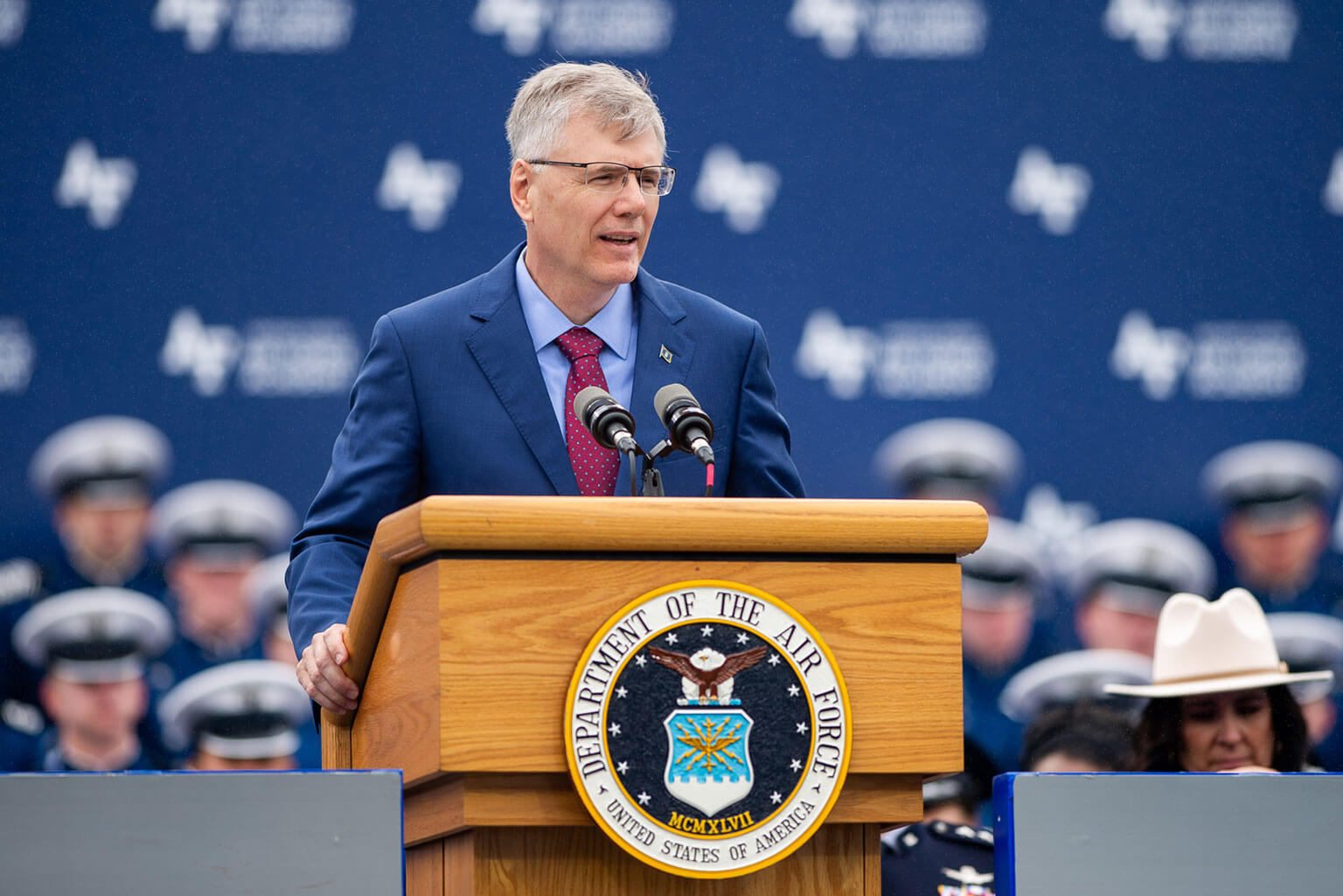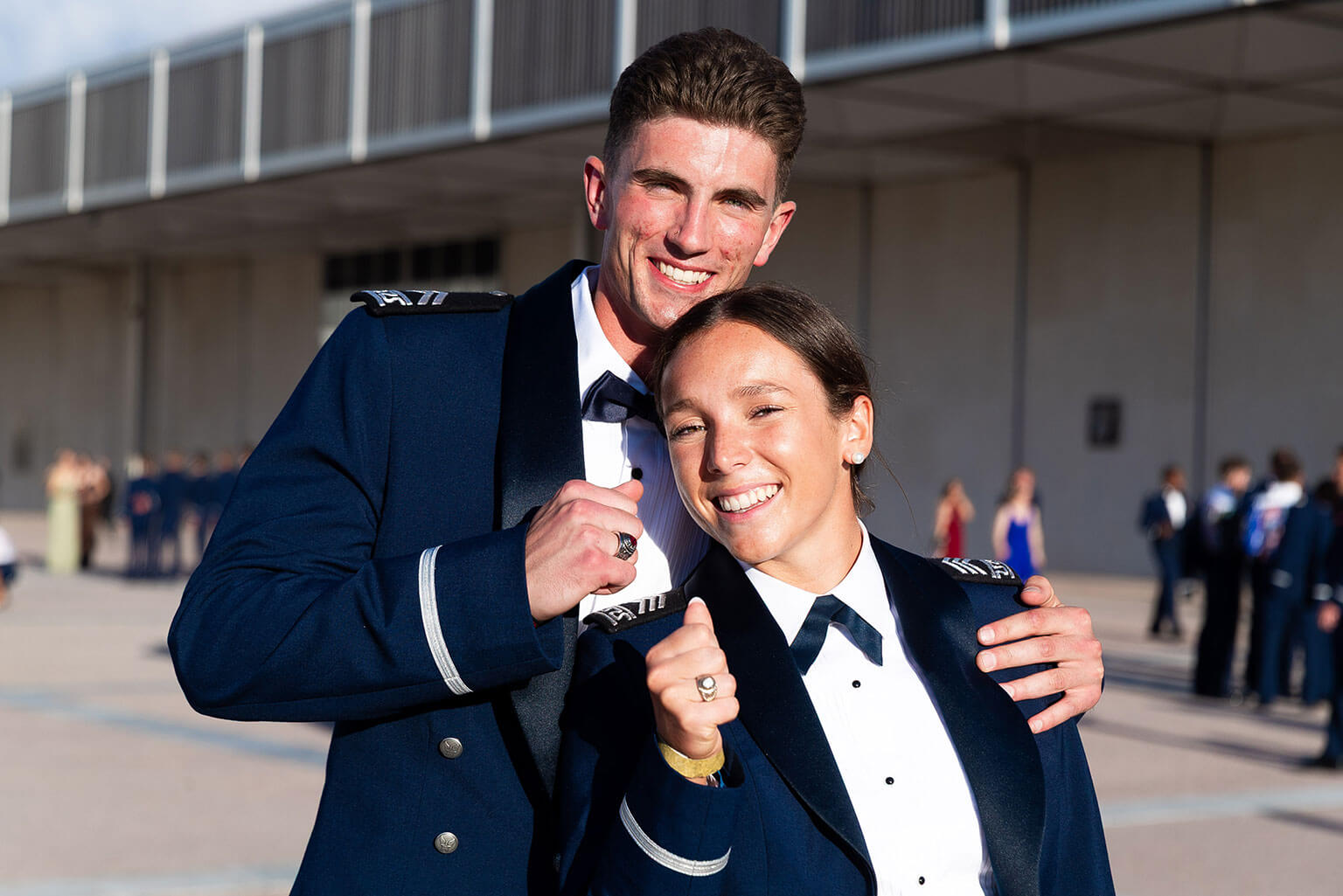Class of 2029 appointees arrive for in-processing
A Class of 2029 basic cadet is learning to stand at attention on one of the footprints at the base of the core values ramp, U.S. Air Force Academy, Colo., June 25, 2025. He is receiving instructions and guidance from a member of the cadet cadre. U.S. Air Force Academy Strategic Communications U.S. AIR FORCE ACADEMY, Colo. – More than 1,100 Class of 2029 appointees took the first step in their journey to becoming U.S. Air Force and U.S. Space Force second lieutenants with their arrival at In-processing Day June 25, 2025, at the U.S. Air Force Academy, Colo. In-processing...
Continue Reading Class of 2029 appointees arrive for in-processing
